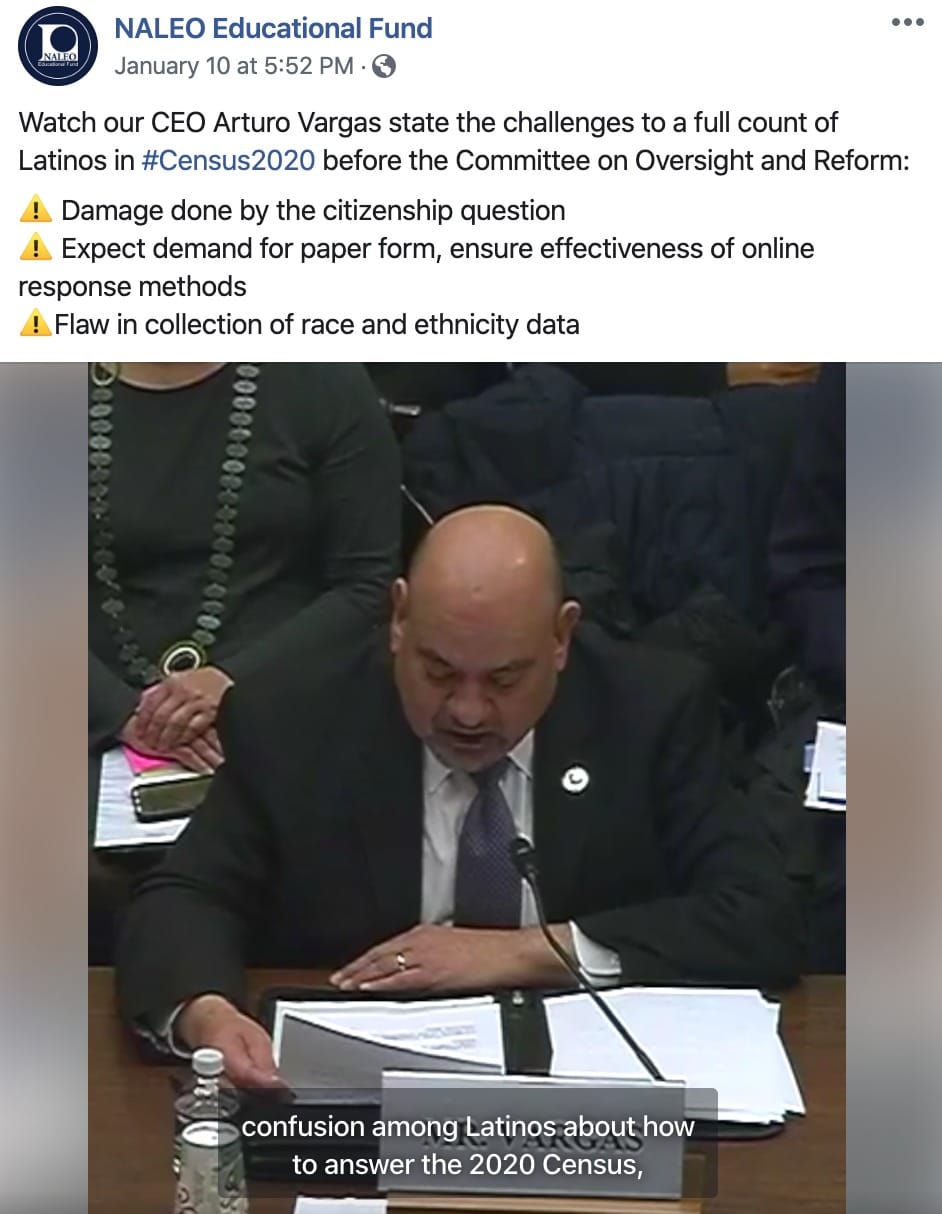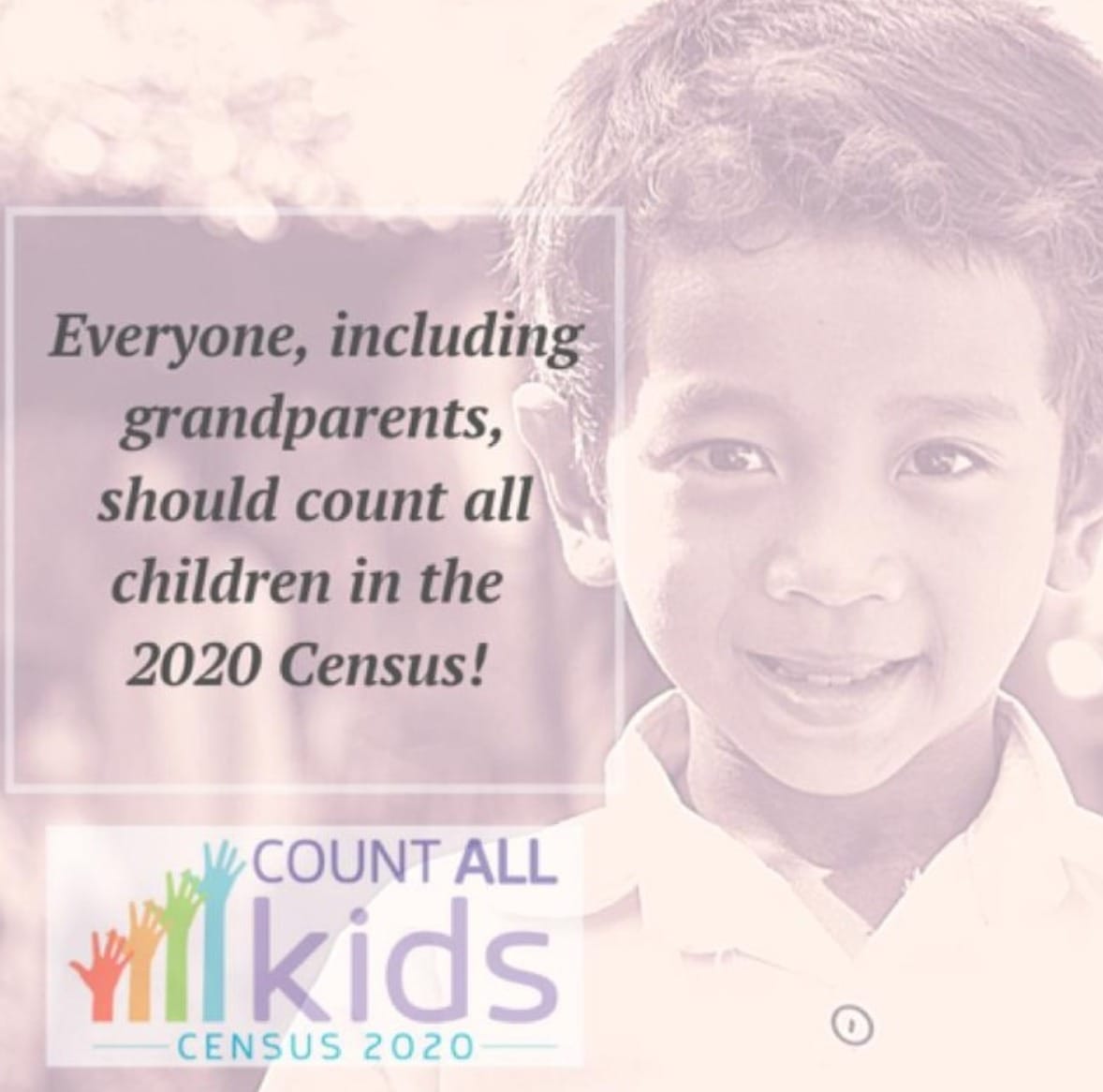There Is No Citizenship Question In The Census 2020 But People Are Still Cautious About Answering The Survey
April 1 is officially Census Day. That means between April and the end of July you can expect someone to knock on your door and ask you a couple of questions such as “The number of people living or staying at your home” and “is your home owned or rented?” and “The sex of each person in the household.” This month, however, people are already getting notices to let them know what will be taking place in a couple of months. There are some people in the country that are not looking forward to this kind of intrusion. Some of those people are actually quite afraid of answering personal questions.
Even though the Census 2020 will not include any citizenship questions, people are still suspicious about answering the survey at all.

On January 10, Arturo Vargas, executive director of the National Association of Latino Elected and Appointed Officials Educational Fund, spoke in front of Congress to inform them that the Latino community is afraid of opening their doors to Census workers and answering their questions.
“They believe there will be a citizenship question on the form despite its absence and many fear how the data will be used,” Vargas said. His entire statement was posted on Facebook. “This is exacerbated by a hostile environment toward immigrants propagated by this administration.”
But it’s not just the Latino community that is cautious about answering the Census questions but Asians too.
“When the administration proposed to add the citizenship question without any testing, we knew right away we had a five-alarm fire … like any fire, the damage that has been done takes time to repair,” John Yang, president and executive director of Asian Americans Advancing Justice, also told Congress, according to NBC News.
The hearing last week took place in an effort to understand why there are difficulties in getting accurate information from people living in the U.S. One of the obstacles that were discussed, aside from their fear of citizenship questions, is that Census workers are not reaching out to “hard-to-count” communities.
“Hard-to-count communities are in every state and district, from large urban areas to rural and remote communities, including American Indian tribal lands and reservations,” Vanita Gupta, president and CEO of the Leadership Conference on Civil and Human Rights, told NBC News.
So why is it important for everyone to answer the Census 2020 questions accurately?

Some people might not truly grasp the severity of answering the Census 2020 questions. It’s not just a survey but a way to track every person living in the U.S. to get proper funding for programs, schools, and a lot more.
“The U.S. Constitution mandates that a census be taken every ten years to count all people—both citizens and non-citizens—living in the United States,” a PBS report states. “Responding to the Census is mandatory because getting a complete and accurate count of the population is critically important. An accurate count of the population serves as the basis for fair political representation and plays a vital role in many areas of public life.”
Aside from public funding, having an accurate assessment of each individual will help in times of natural disasters and emergency responses. Federal funds are also distributed based on population. Another crucial factor in gathering accurate information is that when it comes to voting, the government understands how many representatives are needed for each district.
While the Census has always faced issues in trying to gather the most accurate information, it was during the Trump Administration that minority communities became distrusting of information the government was requesting.

Since 2018, the Trump administration pushed to have a citizenship question added to the Census 2020 but got immediate pushback from virtually everyone. Even the Supreme Court ruled that a citizenship question was off the table. He still pushed for it. Several immigration organizations, however, went after Trump’s agenda and sued against his tactics.
“President Trump is adding the citizenship question into his toxic stew of racist rants and draconian policies in order to stoke fear, undercount, and strip political power from immigrant communities,” Sarah Brannon, Managing Attorney, ACLU’s Voting Rights Project, said in a statement last summer.
Steven Choi, Executive Director, New York Immigration Coalition, added to her sentiment by saying, “A citizenship question on the U.S. census is toxic to New York’s four million immigrants and all New Yorkers, who stand to lose millions of dollars in federal aid and representation in Congress. We will use every tool at our disposal to fight for a fair and accurate count. This is our New York and we’re not going to lose a dime, or our voices, to the Trump administration in Washington D.C.”
About a month later, Trump gave up his Census fight. Yet still, people remain fearful and untrusting of government questions. But can you blame them?




